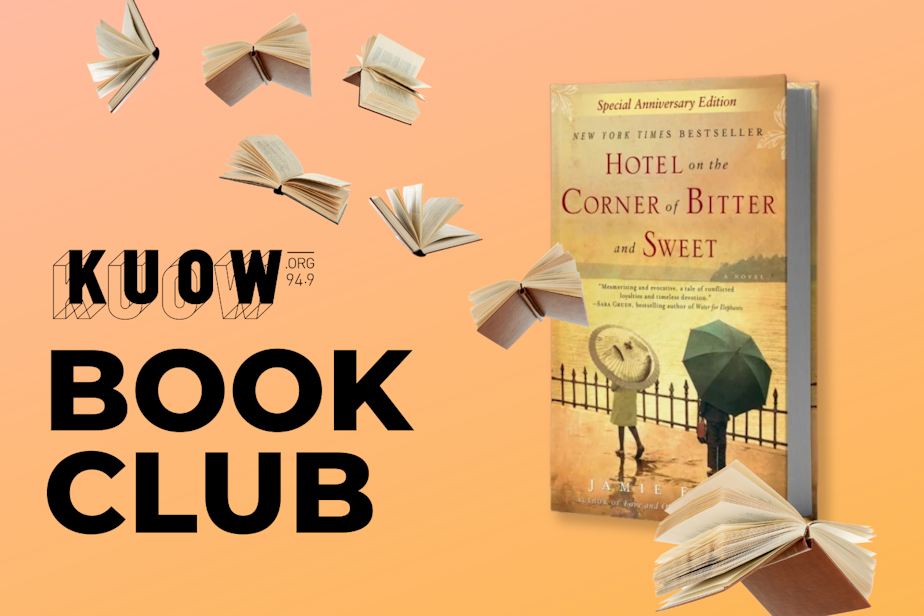Book Club Check-in: Time's role in 'Hotel on the Corner of Bitter and Sweet' by Jamie Ford

As a writer, I always wonder how much authors reveal about themselves in their work – whether they know it or not. I found myself thinking about that as I read the first 13 chapters of Hotel on the Corner of Bitter and Sweet, emotionally charged as they were.
In case you're just joining us, I'm Katie Campbell, an online editor and reporter at KUOW. I’m also your new book club guide, and we're talking today about the first 13 chapters of Jamie Ford's historical fiction novel based in Seattle's Chinatown-International District, the former Japantown, or Nihonmachi, and the titular Panama Hotel.
You can find the reading schedule here.
The way author Jamie Ford uses time made me more curious about how reality fed this work of historical fiction. So today, I want to talk about how time seems to be its own character.
Take this passage in the chapter titled "Dim Sum (1986)":
Sponsored
As we jump from Henry's childhood to adulthood, we see how he's still grappling with the dynamics of being Chinese American – his father insists that he wear a button proclaiming "I Am Chinese" – and the effect on his identity.
As an adult and a father, Henry laments his own son's lack of "filial piety," yet as a child and a son, Henry acts out to establish himself as his own person. For example, as he and Keiko plot their adventure to the Black Elks Club to see Sheldon and Oscar Holden play jazz, he reflects on his sins: that he was going with his Japanese friend, that they'd be in a club where kids weren't allowed, and that he was "close to home but a world away – from his parents' world anyway," as he describes it on page 49.
If you're reading along with the book club, you know what comes next. And if you haven't started reading yet, there's still time to catch up. Read through the chapter titled "Better Them Than Us" by April 22.
In the meantime, send me your thoughts and questions as you read. I'll share them in our next check-in (on April 22) and in our newsletter, where you'll also find more of my thoughts.
Subscribe to the newsletter here, and email me your own analysis at kcampbell@kuow.org.




